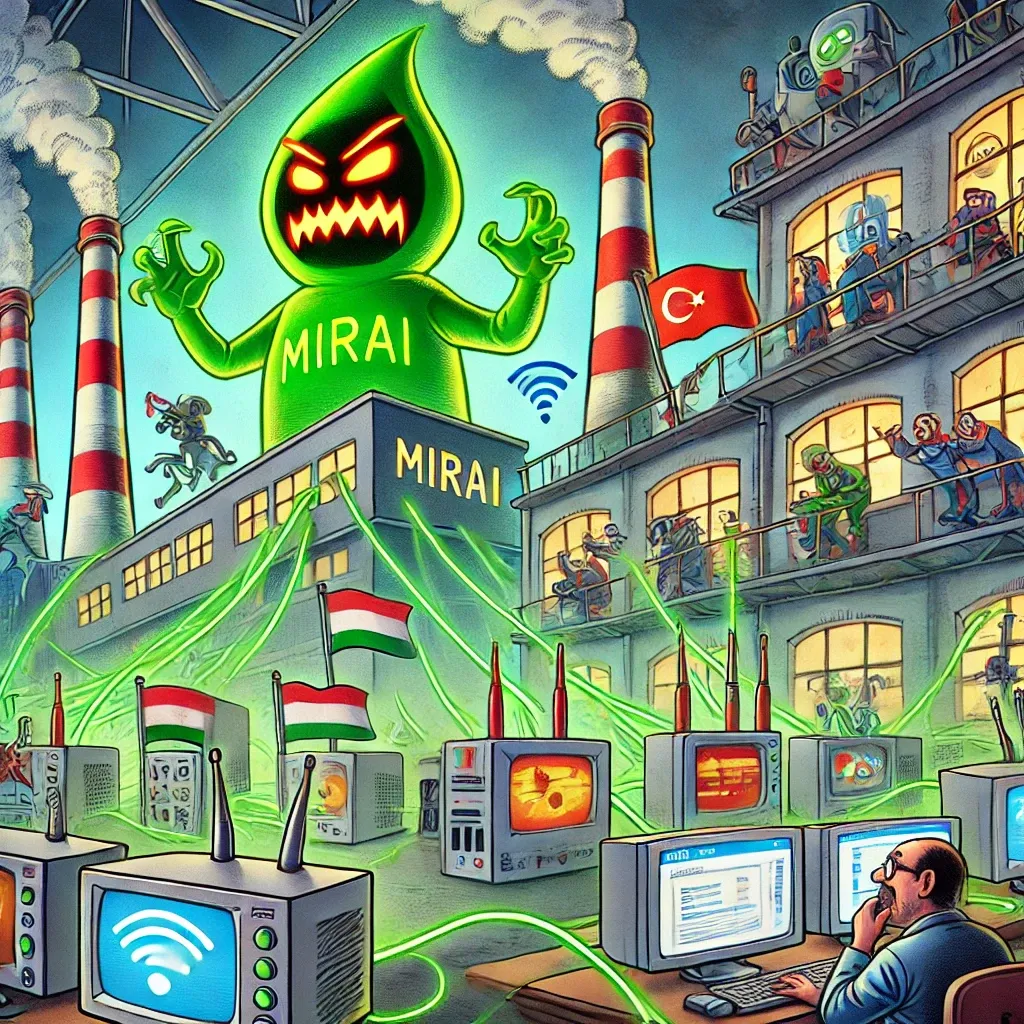When Routers Go Rogue: The Mirai Malware Chronicles

It’s not every day that a piece of industrial hardware becomes a digital supervillain. Yet here we are, staring into the abyss of CVE-2024-12856, a vulnerability so perfectly flawed it could star in its own espionage thriller. This time, the culprit isn’t your everyday hack job—it’s a fleet of industrial routers from Four-Faith, a Chinese manufacturer whose name now feels a touch ironic.
A Tale of Two Exploits
The trouble began with an innocent-looking device, the F3x24 and F3x36 routers. These little marvels of modern connectivity are supposed to link the unconnected. Instead, they’re acting like secret agents gone rogue. Thanks to a post-authentication vulnerability (essentially a big, flashing “HACK ME” sign), an attacker with default credentials can inject commands remotely. Yes, you heard that right. Default credentials. In 2024. Somewhere, an IT security expert is facepalming so hard their glasses have cracked.
The issue is already being exploited in the wild. A malicious IP, identified with all the subtlety of a highlighter on an ancient manuscript, has been using this flaw to spread a variant of Mirai malware. For the uninitiated, Mirai is the cockroach of the malware world. Born in 2016, it’s survived patches, updates, and a global pandemic. It was originally written by teenagers—yes, teenagers—because apparently high school wasn’t challenging enough.
Mirai isn’t just malware. It’s a botnet-building, IoT-consuming monster. According to Zscaler, Mirai accounted for over a third of IoT malware attacks between 2023 and 2024. It’s essentially the cyber equivalent of a viral TikTok dance, except this one destroys your connected devices.
Four-Faith or Four-Lorn?
Four-Faith, the manufacturer in question, specializes in industrial routers and IoT devices. Its website boasts exports to over 100 countries, a fact that now feels less like a brag and more like a security consultant’s worst nightmare. The vulnerability doesn’t discriminate; from Turkey to Spain, from Hungary to China, these routers are everywhere, like digital sleeper agents.
The real kicker? These routers come with hardcoded default credentials. Hardcoded. Default. Credentials. It’s the cybersecurity equivalent of leaving your house key under the welcome mat, then tweeting your address.
Despite multiple attempts by VulnCheck to alert Four-Faith, the company has been frustratingly silent. Either they’re testing the vulnerability or they’ve decided that public relations is overrated. The result is a listed CVE with no patch, no remediation, and no real indication that help is on the way.
Meanwhile, in the Wild West of Malware
While Four-Faith plays the digital equivalent of hide-and-seek, hackers are having a field day. A user agent tied to DucklingStudio (a name that’s either adorably quirky or disturbingly ominous) has been caught leveraging the flaw. Using a honeypot—a decoy system set up to trap hackers—they’ve observed Mirai variants exploiting the vulnerability.
VulnCheck even posted a video of the flaw being exploited on X (formerly Twitter), which raises the question: Are we educating the public or just giving hackers a free tutorial?
Lessons in Cybersecurity (or Lack Thereof)
This fiasco teaches us several valuable lessons. First, default credentials are the cybersecurity equivalent of playing with fire while standing in a pool of gasoline. Second, vulnerabilities don’t just affect devices; they ripple out, turning innocuous routers into weapons of mass disruption. And third, when a company doesn’t respond to multiple security warnings, it’s time to start asking some very pointed questions.
What Happens Next?
The National Vulnerability Database lists the severity of this bug at 7.2—serious, but not catastrophic. Yet the lack of a patch or remediation strategy means the problem could escalate. With over 15,000 exposed routers, this flaw has the potential to go from “bad” to “spectacularly awful” faster than you can say “cyberattack.”
Until Four-Faith decides to return VulnCheck’s calls (or carrier pigeons, or smoke signals), the world’s IT professionals are left in a state of anxious vigilance. In the meantime, Mirai continues its reign as the malware that just won’t quit, proving once again that even the most mundane devices can harbor extraordinary chaos.
And so, as routers across the globe quietly plot their next moves, we’re left to ponder the curious dance of technology and vulnerability. Somewhere in Xiamen, Four-Faith’s engineers are (we hope) working feverishly to patch this hole. And somewhere else, a hacker is laughing maniacally while exploiting yet another default credential.
Such is life in the digital age.
Comments ()